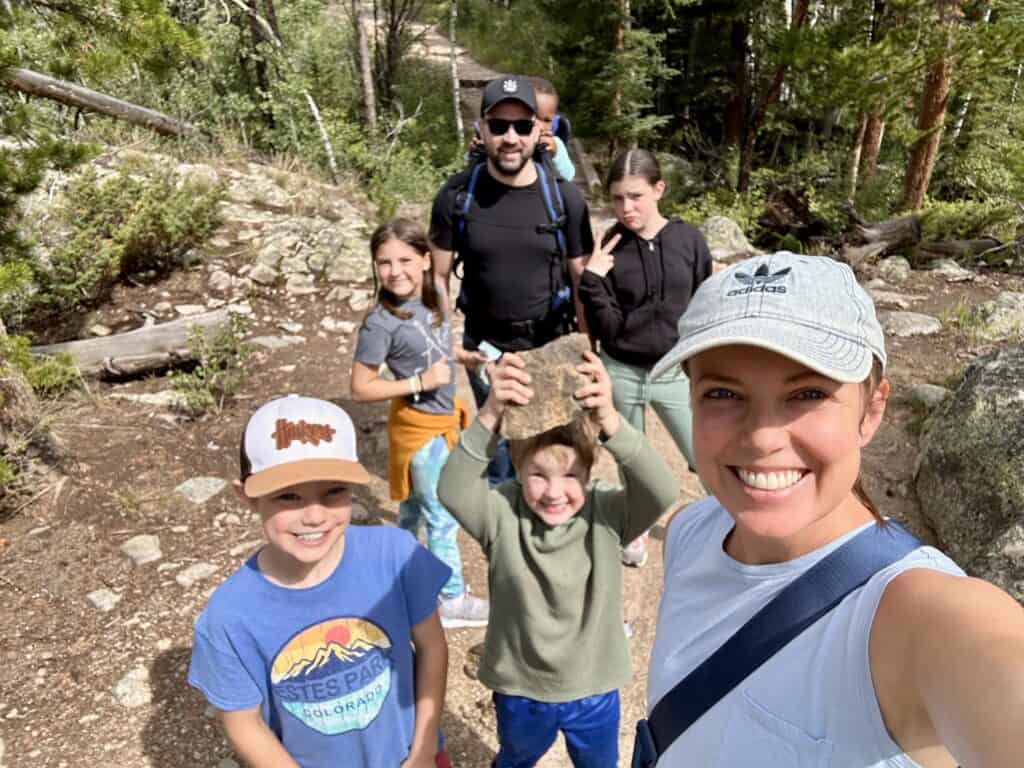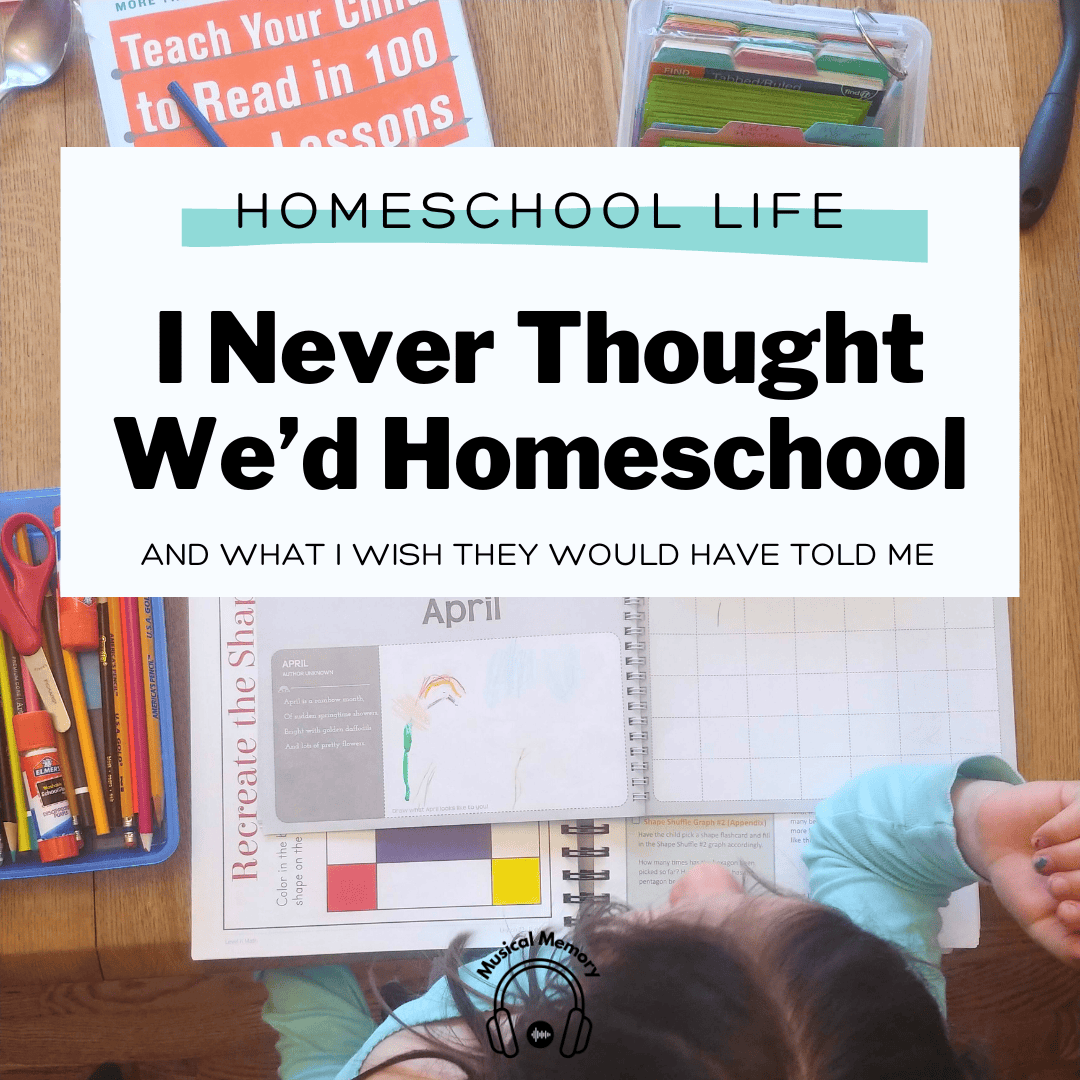In 2012, I had my first job as an elementary school music teacher. It was a long term sub position in a Chicago Public school that had 3 immersion classes per grade: one classroom taught in English, one in Spanish, one in Arabic. All the “specials” classes (PE, music, art, etc.) were in English. The first day, I was incredibly grateful for that one college class where I learned something that translated into the real-world classroom. (It wasn’t even in my major.)
My favorite professor, for whom English had been a second language, advised: never read the students’ names off the roster. (In case of mispronunciation. She noted many ELL students won’t correct the teacher. You might end up mispronouncing their names the rest of the years you have them in class.) Instead, she said, allow them to tell you their names one by one and help you find their names on the list. Write down the pronunciation on your attendance chart to help you remember & give the children permission to help you pronounce it correctly.
Zainab, Amira, Noor, Suleiman, Yusuf, Emiliano, Camila, Ximena, and Diego…. 7 grade levels with 25-35 kids in each class. One by one they told me their names. One by one I gave them permission to correct my mispronunciation and help me get it right.
Every night, I practiced at home and eventually learned all the names. 5 months of school flew by. The staff at that school was amazing, the kids & families were kind and welcoming, and we had a GREAT semester of learning music.
And I never saw any of them again.
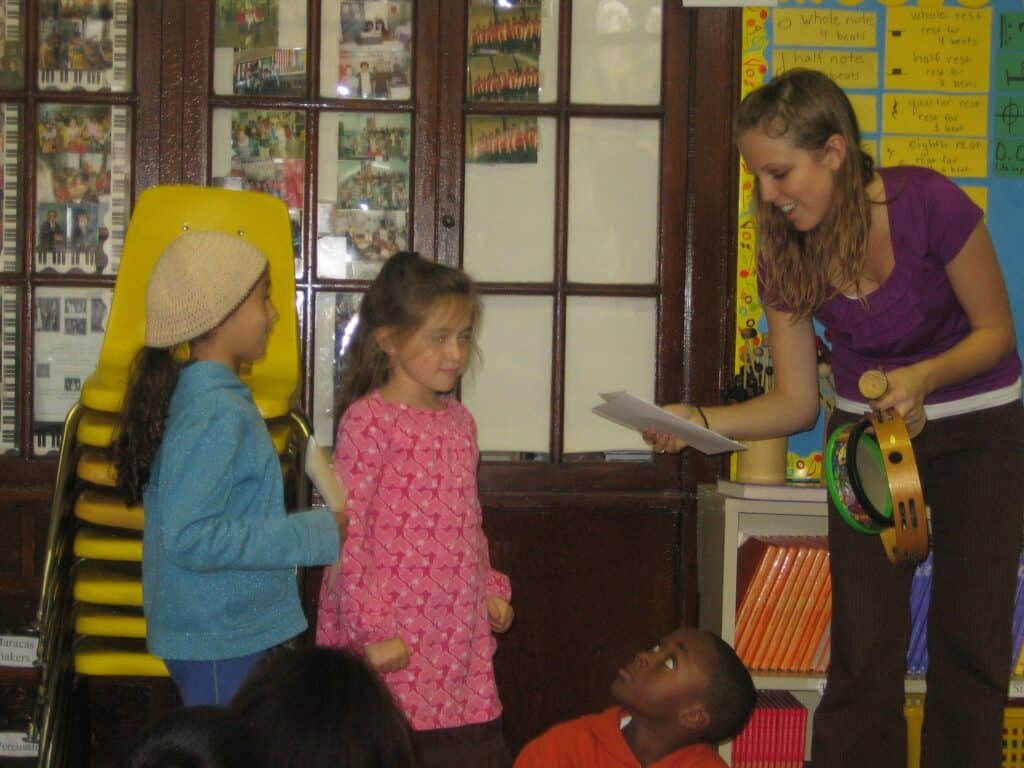
That same year my new in-laws, who I very much admired and respected, announced to the family they were going to try an experiment with the 4th and 5th grade children they still had in the home… for 5th and 6th grade, they were going to homeschool.
Surely not, I thought. My inlaws are highly educated, successful professionals. How in the world were these intelligent, well-read professional working people with multiple degrees behind their name, going to home school? (The irony of that thought process is not lost on me today.)
But someone had given them a book that compelled them to chart a different path than the one they’d very enthusiastically run on until that point. My husband and his sister had gone to highly ranked Montessori and International Baccalaureate public schools and then on to private universities. (And then on to graduate school!)
So my husband and I, all doe-eyed and newly wed, watched their homeschooling experiment with genuine curiosity & interest. Plus, a side of upper-middle-class-university-educated judgement that masquerades as “concern.”
They gave me the book they read knowing I’d likely find it interesting. I’d loved practicing and thinking about teaching ever since I taught all my American girl dolls to read in my bedroom. (Turns out I was homeschooling my dolls before it was cool.)
We, of course, had a responsible “5 year plan” to work interesting jobs and do the interesting things that people do when they get married at 22.
The best laid plans…
By our second anniversary, we were pregnant. By the time she turned 3, we knew we’d homeschool. The very thing I’d scoffed at seemed, suddenly, to be the most sensible option.
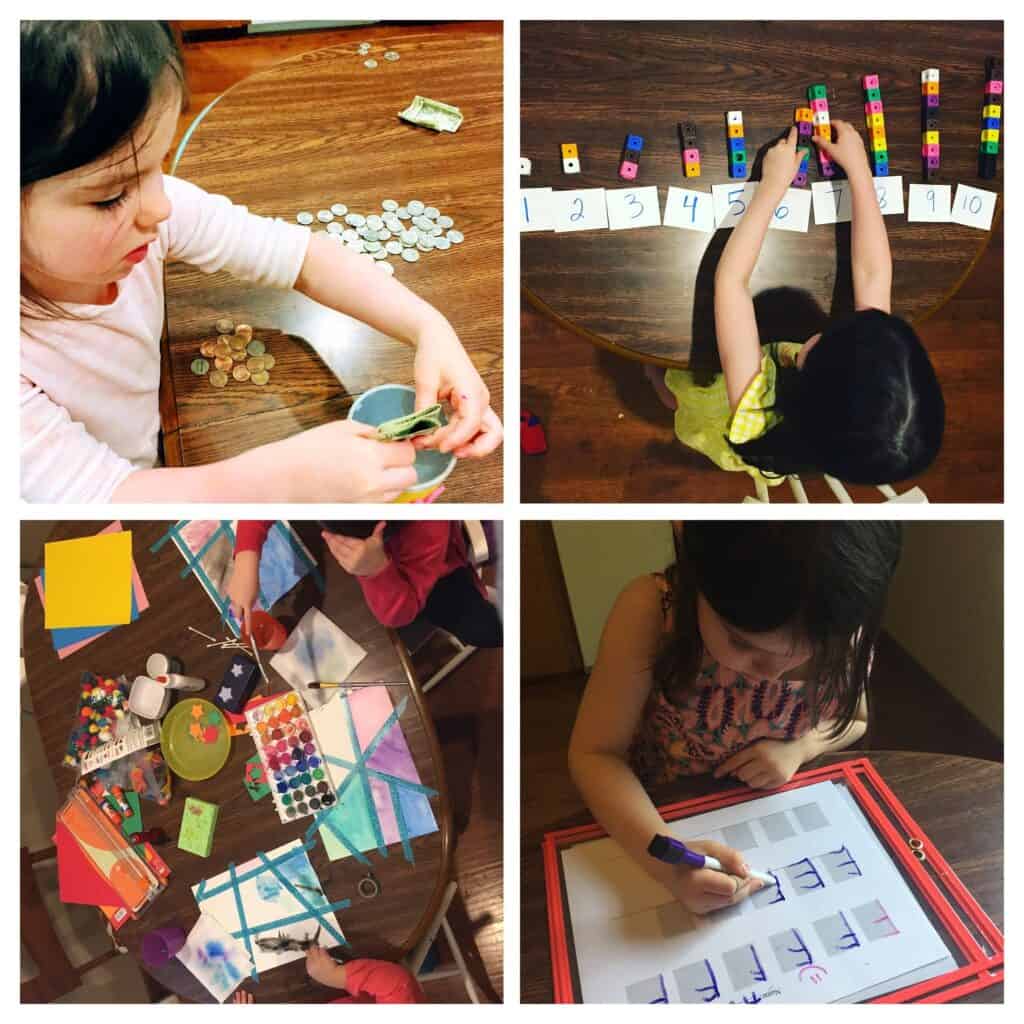
“Forever?!” everyone asked us.
We honestly weren’t sure. But we were going to give kindergarten a go.
I Have No Idea
To all the caring skeptics, I projected confidence & rattled off what I thought they’d want to hear and what made me feel validated as a brand new homeschooler…
Q: Well I suppose it’s helpful that you have a teaching degree?
A: Yes thankfully, it does help that I have a teaching degree. (It did not. In fact, most teachers-turned-homeschoolers argue their teaching degree was a hindrance.)
Q: How will you know if they’re on track?
A: Oh, I’ll be following the top schools’ scope & sequence so I’ll be able to tell if my kids are on track. (I’ve never done that.)
Q: How will you teach multiple ages at once?
A: Well once my younger kids are over the age of 3, I’m sure we’ll figure out some sort of schedule or rotation system. (Nope, didn’t do that either.)
How will you teach reading?
Are you sure you can keep up with math?
What if you hate it and they want to go back to school but they don’t know how because they have no social skills?
How do you know if you’ve covered everything?
What about socialization?
I had a semi-socially acceptable answer for each question, but deep down, the real answer was, “I have no idea.” It was 2016 and most people in our circles didn’t know someone who homeschooled. If they did, they were “weird.”
In fact, for many of our close friends and family at the time, I was the only person they knew who’d be a “homeschooler.” (Please make sure to hear a hushed, concerned tone when you say homeschooler.)
I read all the books, but I couldn’t wrap my mind around what these experienced homeschool moms were saying. 1 hour a day for kindergarten? Focus on daily routines & life skills? Latin in elementary school?
I had no clue what to do and I had no answers to all the well-intentioned questions. I only had a guess. An instinct that this was the path the Lord was leading us on.
What I really wished people in my life would have done is cheer me on. (My heart behind starting a homeschooling email list.)
What I really wished was that someone would say:
“Wow! Your kids are lucky to have a parent who will give up a career & free time to educate them at home. I know you’re tired but hang in there, your kids will get older & it’s going to get really fun. That send your kid to school all day thing is overrated anyway. It’s going to be great. They’ll be able to move at their own pace, have 1-on-1 “tutoring” style lessons, learn to become independent thinkers, follow passion projects & rabbit trails, own their own learning, study Spanish & chess & violin & baking, dabble in hobbies, spend plenty of time outdoors, learn in multi-age settings, build character by helping younger siblings, get plenty of exercise, master life skills, learn to cook, eat healthy meals around a table with people they’ll still know in 20 years…”
Alas. Most people peppered awkward questions that you’d never ask someone who was choosing any other form of education, and concluded, “Good for you, I could never do that.”
Thanks, I guess.
In hindsight, choosing to listen to the nudge in our hearts and do it anyway began exercising the greatest muscle you need as a homeschooling mom. The “I can do hard things” muscle.
The Early Days
As my daughter turned 4, I was sure my biggest problem was not knowing what kindergarteners “should learn.” I felt thankful that was a problem I could solve through extensive research. And research I did.
Another cute 4 year old in our life was already reading fluently, so I started out thinking I was behind. My extensive research led me to Teach Your Child to Read in 100 Easy Days. There was a sticker chart & she learned letter sounds. But there were also tears.
She struggled and I felt like a failure because, remember, we were already behind.
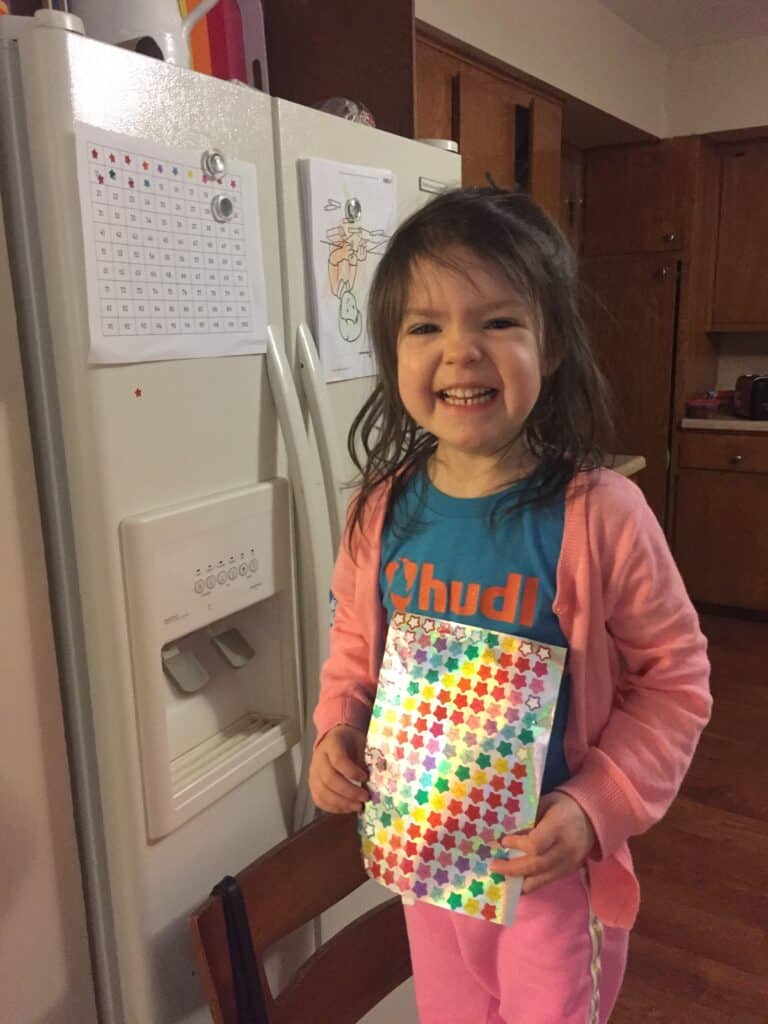
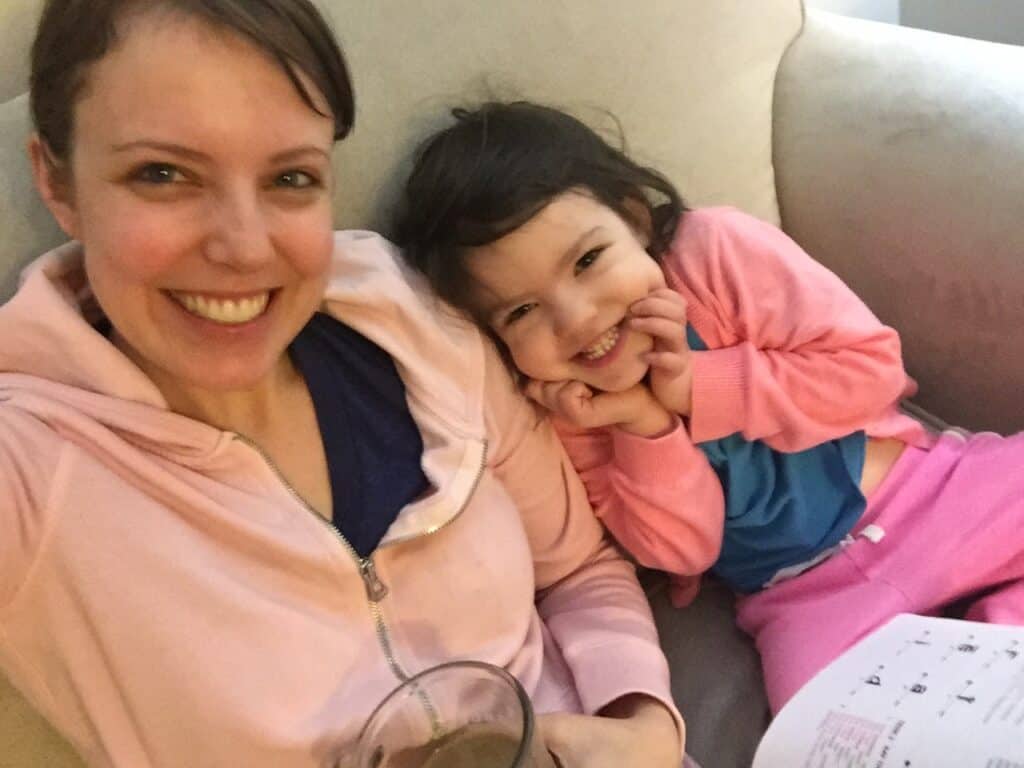
An Alternative Homeschooling Approach: By the Wayside
If I could go back, I’d caffeinate the tired mother, full of fear that she’s not enough. I’d hug the teary eyed confused child. And, I’d send them both outside on a walk.
I’d tell the Mom to relax- having a child read at 4 doesn’t validate her as a mom. Trust your gut, slow down. Early isn’t better.
I’d tell the child her intelligence and worth aren’t tied to the age she starts reading at.
I’d lay out a simple preschool & kindergarten plan over coffee while my older kids patiently and lovingly took care of her younger kids because learning at home cultivates AMAZING older-younger sibling dynamics. It creates friendship and inside jokes; exercises patience and character; tests the relationships that matter most in the most sanctifying way.
I’d tell her one of the hardest things you’ll ever do is start homeschooling your oldest child in kindergarten with 1 or more younger, needier kids. She could wait a year. But if she really really needs to start homeschooling right now, then reading books, preschool math at home, memorizing phonogram flashcards, & singing songs together would be enough.
I’d tell her that God gave her these precious children she was pouring herself out for. And He said,
“Love the Lord your God with all your heart and with all your soul and with all your strength. These commandments that I give you today are to be on your hearts. Impress them on your children. Talk about them when you sit at home and when you walk by the wayside, when you lie down and when you get up. Tie them as symbols on your hands and bind them on your foreheads. Write them on the doorframes of your houses and on your gates….”
-Deuteronomy 6:6-9
I’d tell her to learn to teach as much as she can by the wayside… as she lives life with her kids. I’d tell her to make a few simple checklists to help with daily routines.
To read books aloud & teach kids to write their ABCs.
To learn math in the real world.
To sing songs for life-long memorization.
To talk about the things of God and search out the answers to BIG questions. How does the ant carry a bread crumb 40x its weight? How do seeds grow into plants 10,000x their size?
And then I’d tell her that in all her moments of weakness (there will be many), HE is enough.
That she can bring every doubt & care & concern to Jesus because He cares for her. That she can lay down the burdensome yoke of “doing enough school,” because His arms are open wide. He offered to exchange his easy & light yoke for her burdens, if only she’ll come. If only she’ll let go.
Here We Are
8 years later, we’re still going. Who’d have thought? Certainly not me.
But we’re the real homeschool deal now. You can spot us from a mile away… kids out in the middle of the day, practicing poetry in the orthodontist waiting room, Mom using the teachable moment at the grocery store to learn how to do a percentage discount, art museum field trips with Grandma.
The whole 9 yards. I don’t know if we’ll ever recover.
There are days where I still wonder if anyone is learning anything. Every February, I think, “Surely we need to enroll in school. This is not working.” (You too?? Oh, it’s normal. A wise experienced homeschool friend once said, “Don’t make any major life decisions in February.”)
But, there is also a calm certainty that comes over the years. I wish I could bottle it up and hand it to every new homeschool mom so that you wouldn’t experience fear or doubt.
But maybe it’s the continual laying down of our burdens, fears, and doubts that keeps us at the feet of Jesus. He gives us strength for today and bright hope for all the tomorrows.
A friend whose oldest two kids went off to college last year (and thrived!) said that she finally has the confidence to just enjoy homeschooling her younger four, keep it simple, and trust the process. That seems like pretty good advice to me.
